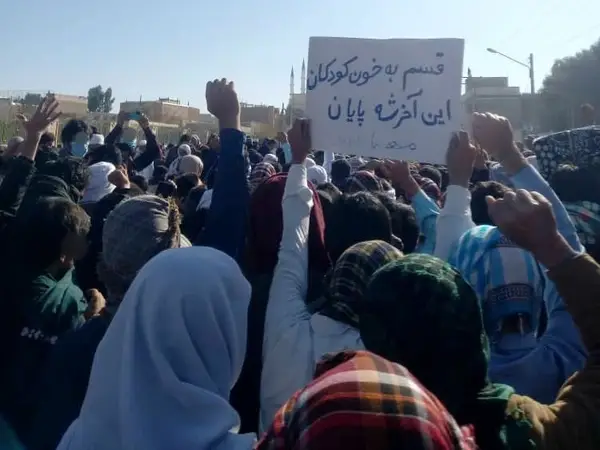As every Friday for three months, protests started December 23 following the sermon of Zahedan’s Sunni cleric and spread throughout the provincial capital of Sistan-Baluchestan.
People also held rallies in several cities of the province on December 23 chanting slogans against the Islamic Republic’s ruler, referred to as “dictator” in the vernacular, as well as Basij paramilitary forces, who are the main force of repression in the region. Another slogan frequently used by the protesters is roughly translated as “Basijis, Sepahis (IRGC members), you are our ISIS” pointing out the similarities between the Islamic Republic regime and the takfiri terror group.
During his Friday prayer sermon, Abdolhamid addressed the rulers of the Islamic Republic urging them to "Return the soldiers to the barracks. Let them stay in the barracks and try to defend the homeland and refrain from hitting their own people.”
Condemning the regime’s crackdown on dissent, he recalled that the Islamic Republic came to power with the support of the people and not a military coup or armed insurrection. Only people's movement for freedom and justice would work, he noted, adding that "The revolution will last as long as the people want it. It survives as long as people support it. It is not possible to maintain the system by using weapons and soldiers, by force and prison.”
In another part of his sermons, he said saving the religion is superior to saving the Islamic government, noting that religion should not be sacrificed to save the regime.
Many have argued in the media and public forums that commitment to religion has weakened in Iran as people became more disillusioned with clerical rule over four decades.
Abdolhamid also criticized the death sentences issued for protesters and reports of rape and torture of detainees, wondering who has allowed such atrocities. "Islamic law – or sharia -- has rules. Judges and other officials should work within the framework of Islam. No one can beat the accused, force them to confess and execute them…No ruler has such authority and cannot act above God's law."
On Thursday, Abdolhamid had repeated his demands for the prosecution of those responsible for the massacre in his city, underlining that the killings in Zahedan was “a premeditated plot.” He also rejected statements by officials, including a delegation sent by Iran’s ruler Ali Khamenei in November, about protesters attacking a police station before security forces opened fire at them. He emphasized that security forces fired live ammunition at peaceful protesters in Zahedan, insisting that the attack was unprovoked.
Abdolhamid enjoys respect, especially among the 15 million Sunni population of the country. His popularity was dwindling over his support for hardliner President Ebrahim Raisi and recent meeting with representatives of Ali Khamenei, but he started to save face by his signature criticism of the regime and his criticism of systematic corruption in Iran.
An audio file recently leaked by the hacktivist group Black Reward revealed that the Islamic Republic planned to tarnish Abdolhamid’s reputation to curb his influence. In November, the outspoken Sunni Imam said women, ethnic and religious groups, and minorities have faced discrimination after the establishment of the Islamic Republic in 1979. He has also called for an internationally monitored referendum in Iran saying by killing and suppression the government cannot push back a nation.
